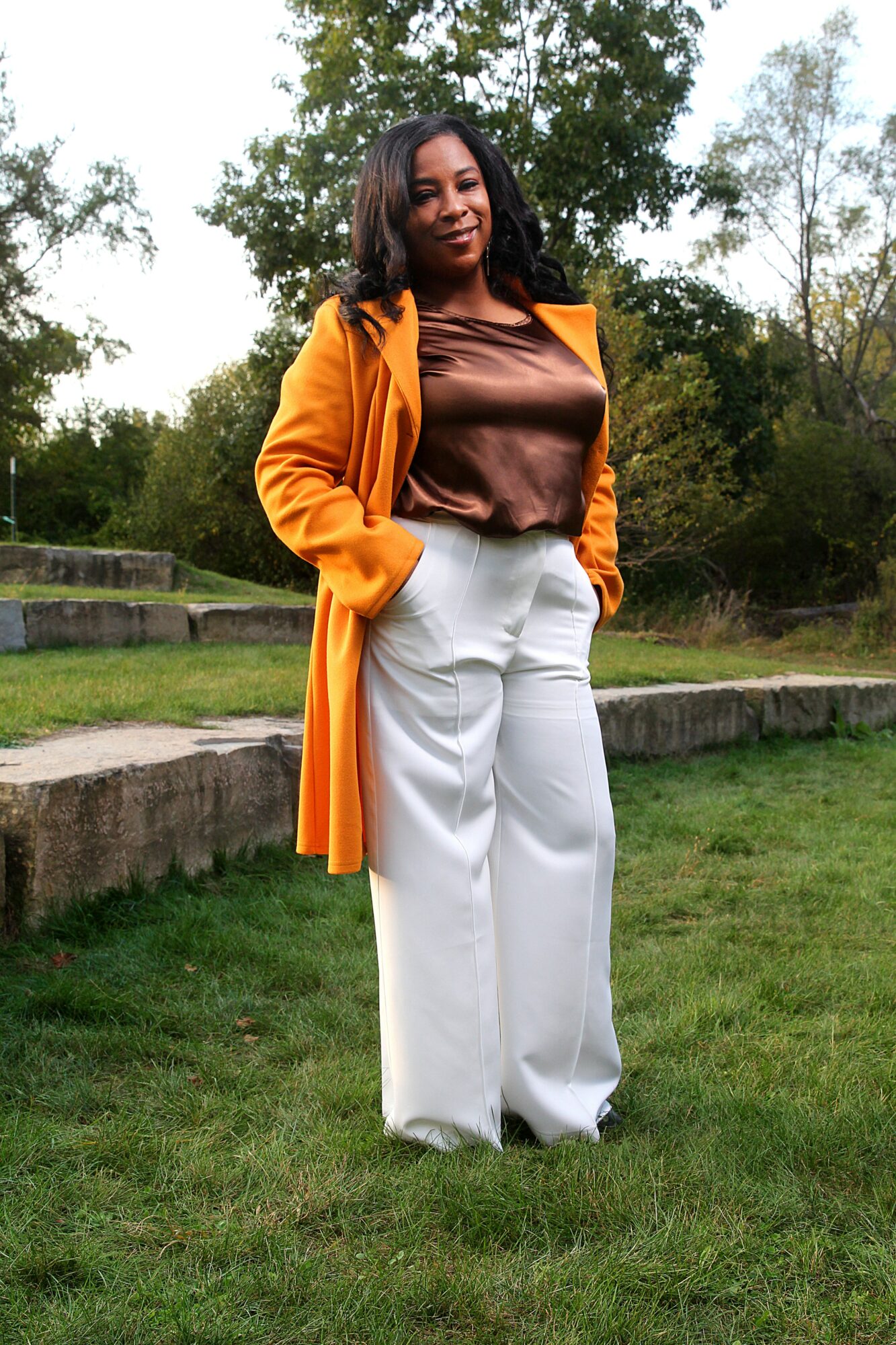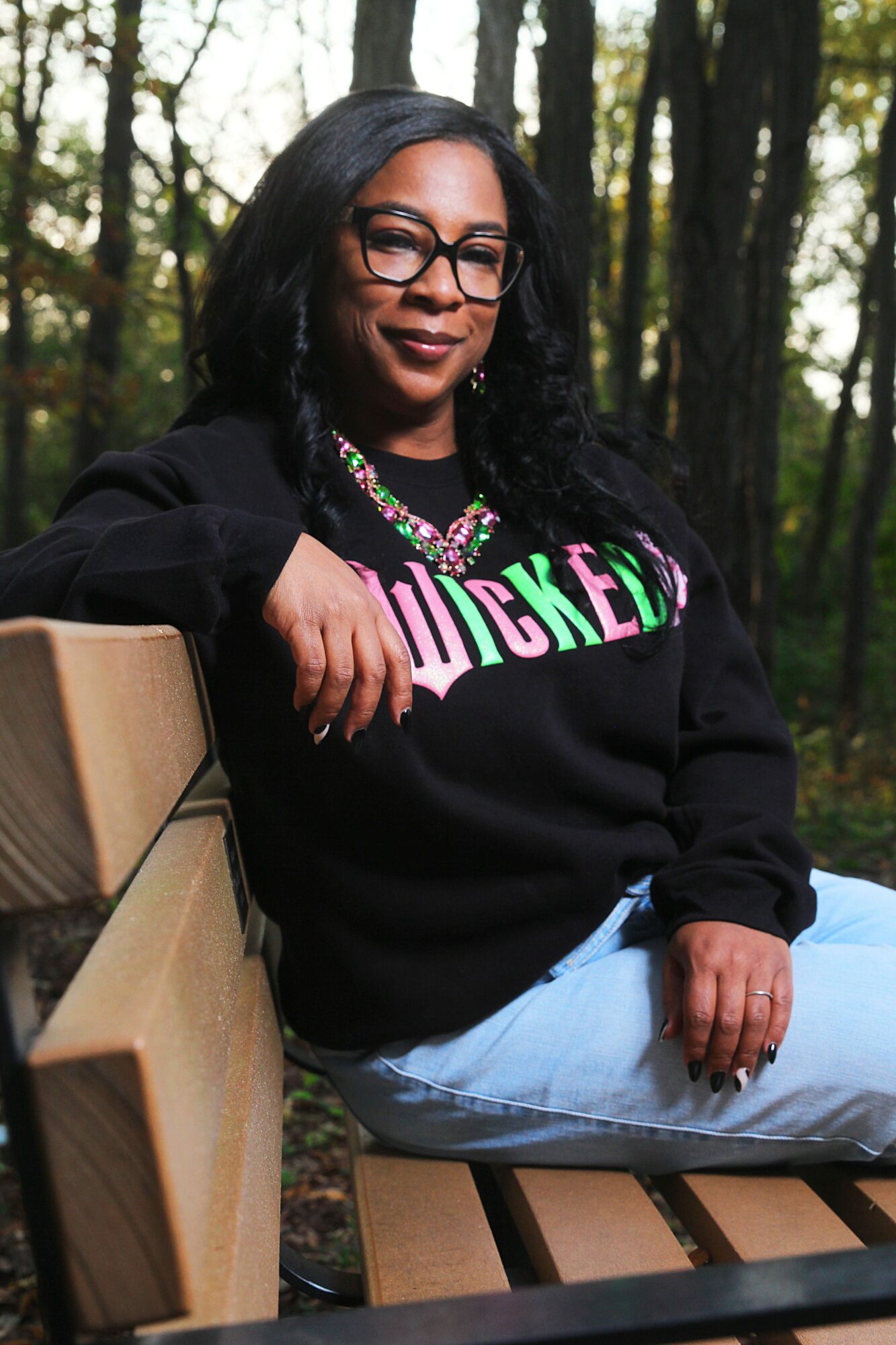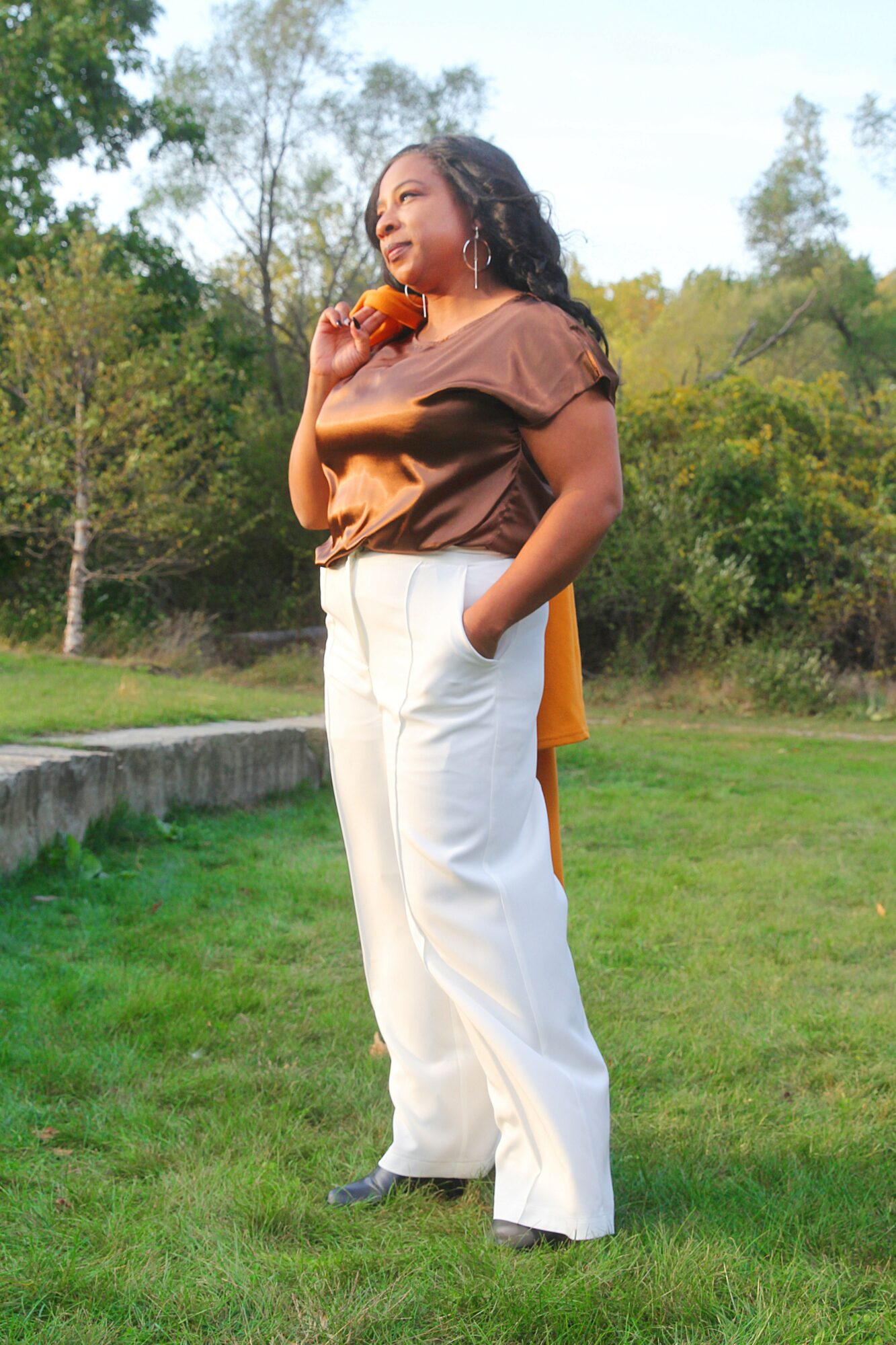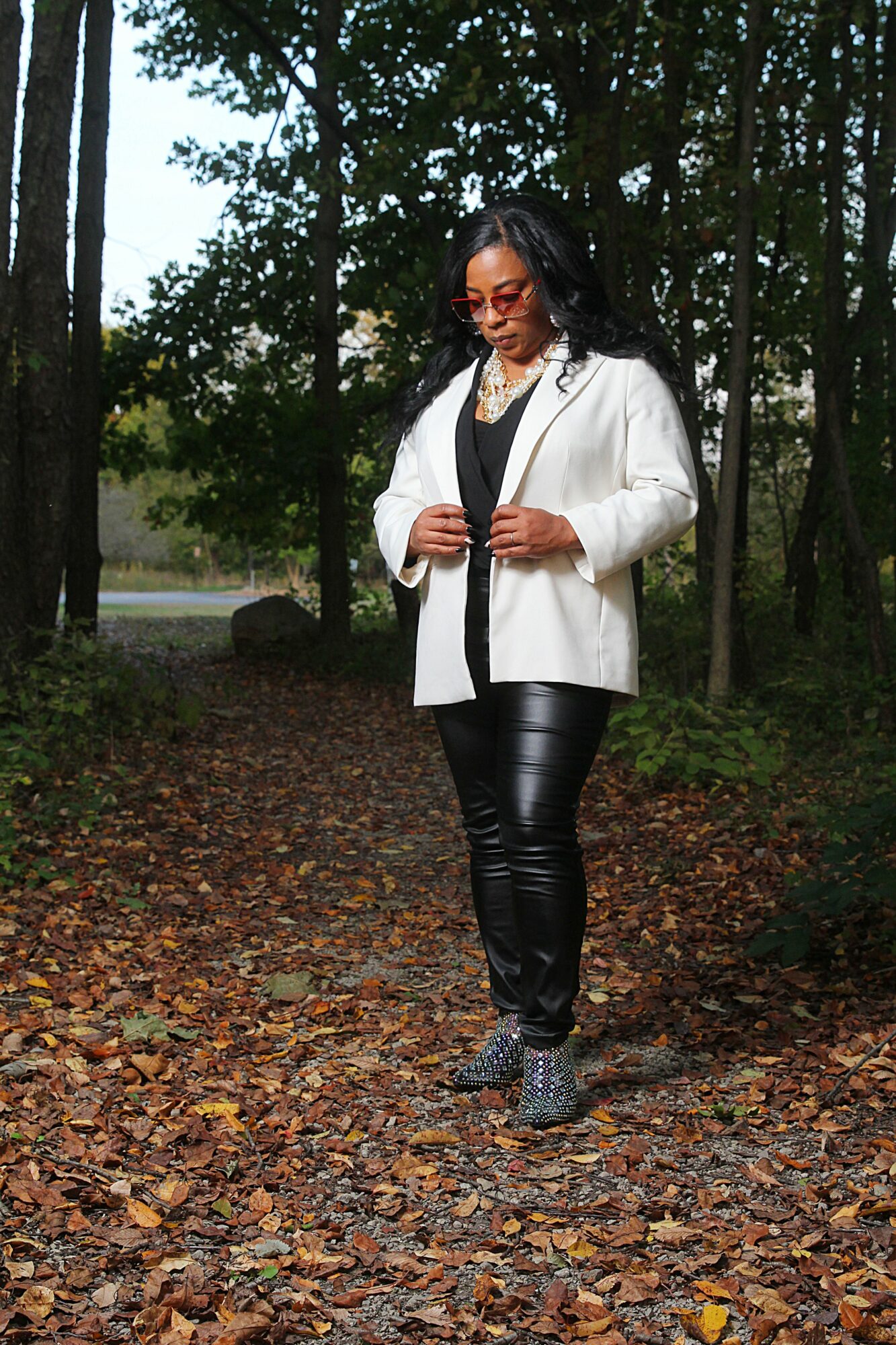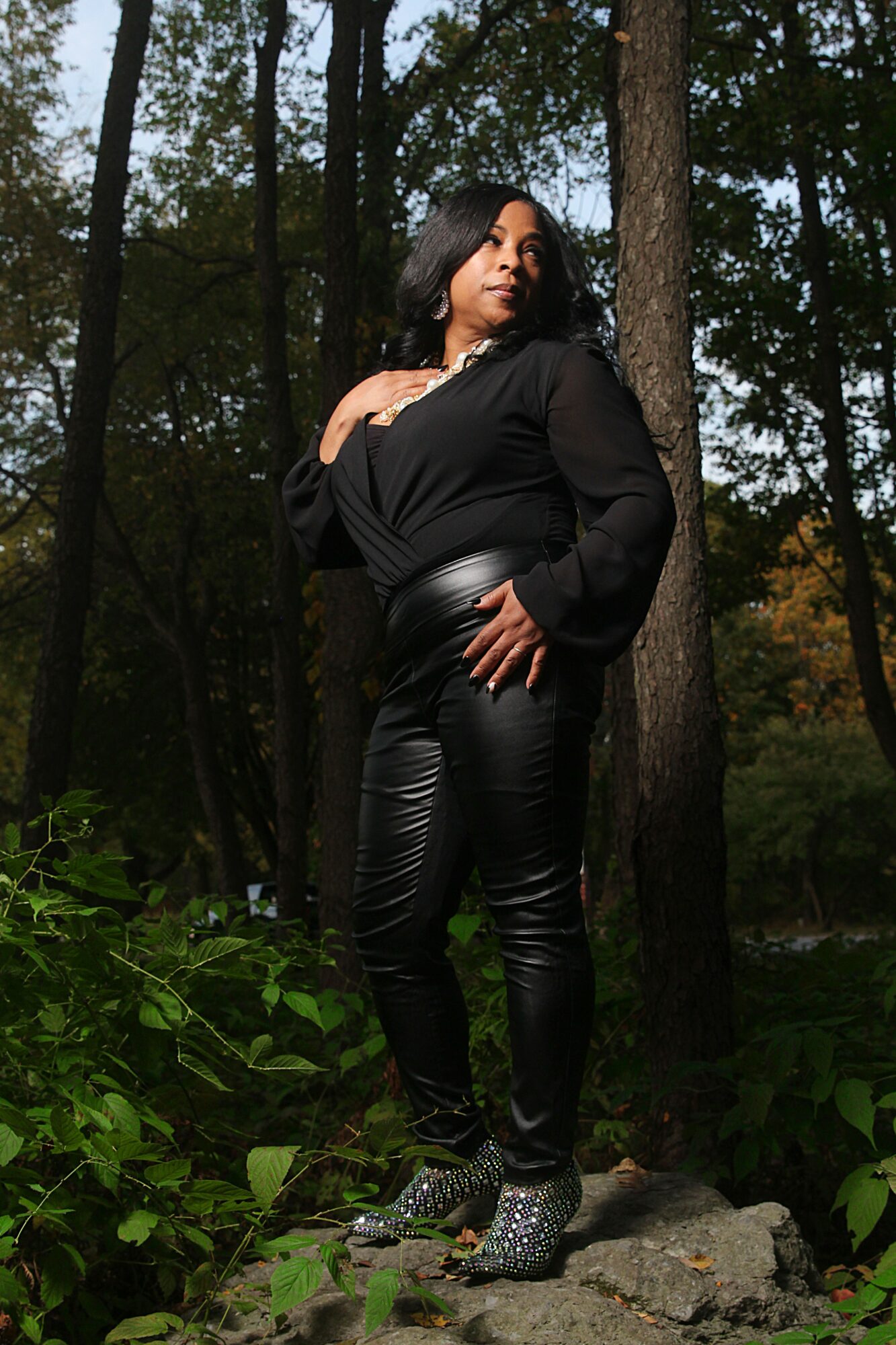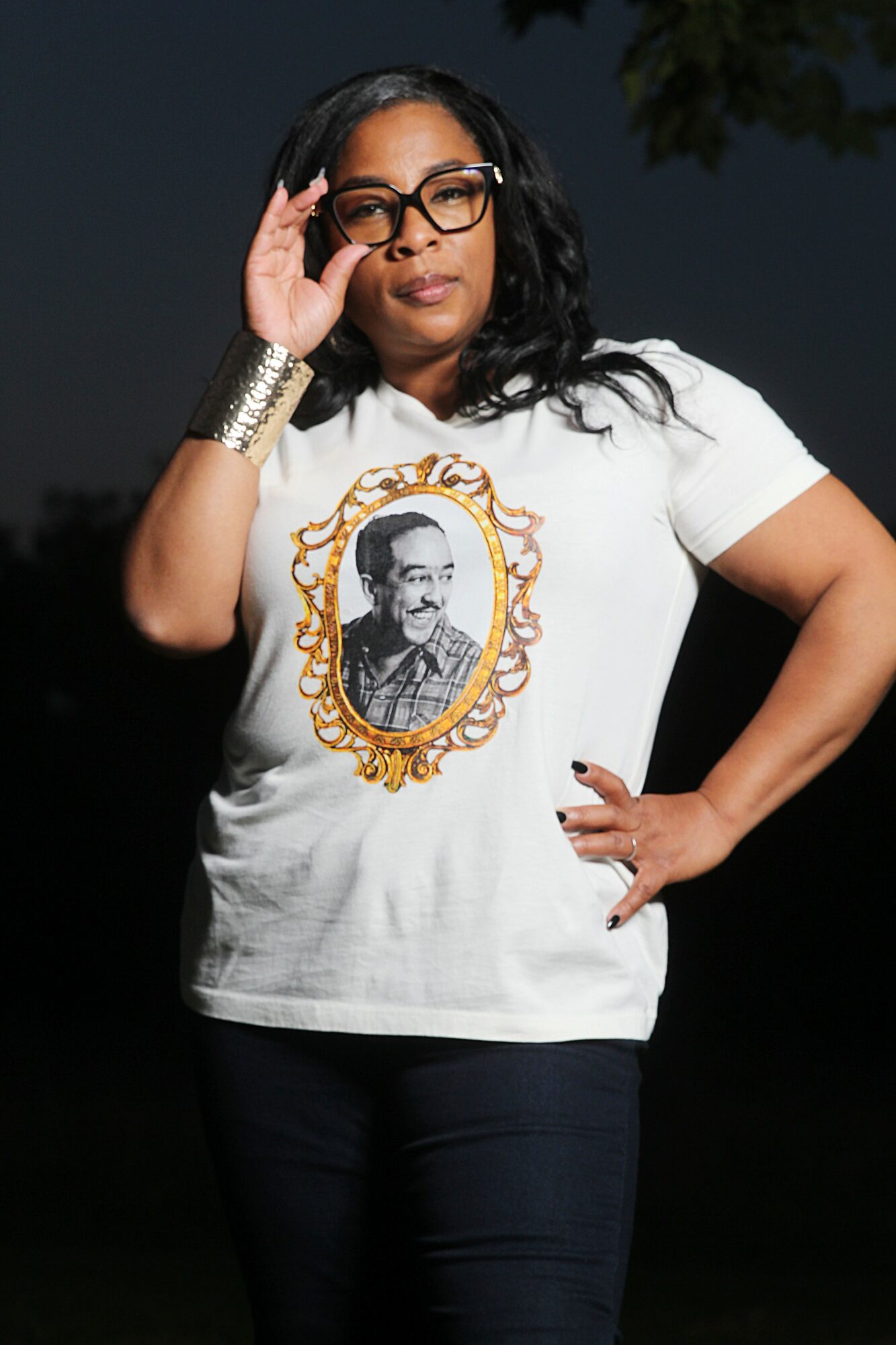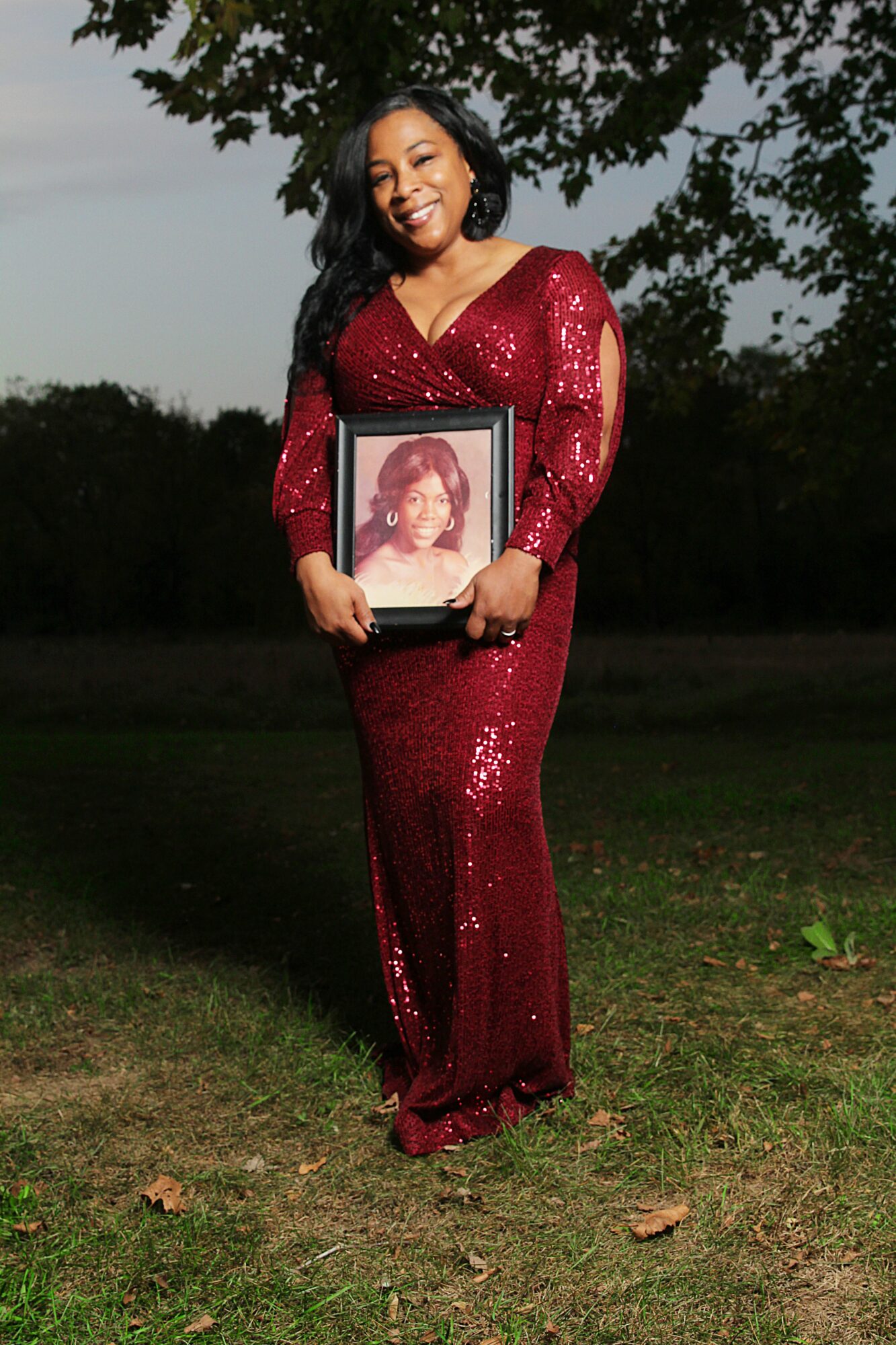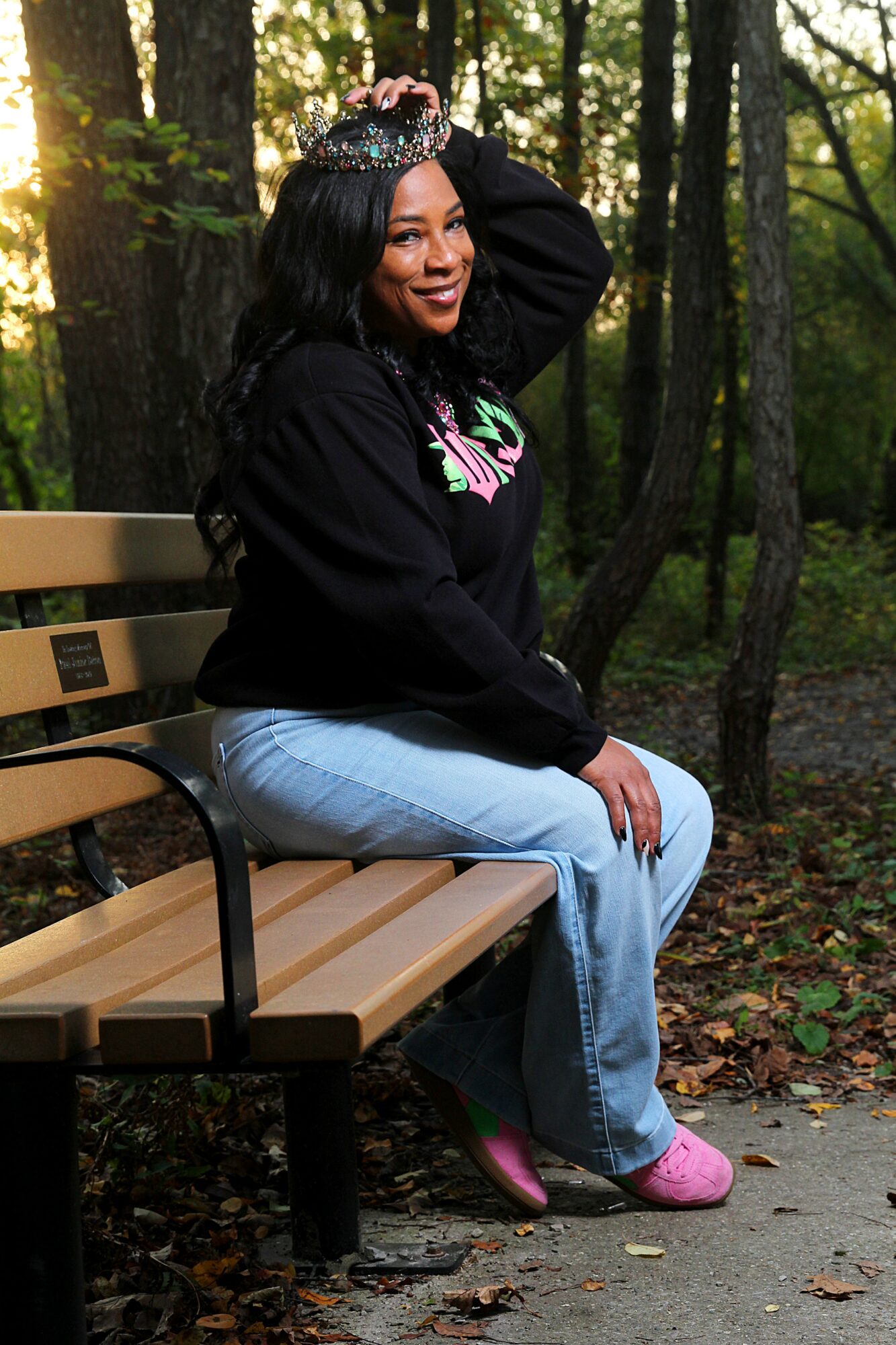

Today we’d like to introduce you to Qiana Towns Williams
Alright, so thank you so much for sharing your story and insight with our readers. To kick things off, can you tell us a bit about how you got started?
Flint is at the heart of everything I do. I grew up at the corner of Stewart and Industrial, right across the street from what used to be the Buick City plant. Every day, I’d watch cars going in and out of that parking lot. That image has stuck with me, and I’ve even written a poem about it. My father, grandfathers, aunts, uncles—pretty much everyone—worked for General Motors. No one in my immediate family had finished college, so I just assumed that would be my path too. But things took a different turn.
However, with encouragement from my school counselor, I went off to Central Michigan University, and honestly, it was a stressful and confusing experience for the first two years. I didn’t have a clear picture of what my future was going to look like, but I stuck with it. I ended up finishing my undergrad in History and English, still not sure what I wanted to be when I grew up. Things started to click for me after my first daughter was born in 2001. I realized I had to start thinking about what kind of life I wanted to create for myself and for her. That’s when I made the decision to go to graduate school.
It was the hardest experience of my life, but it also taught me resilience. My daughter was around 3, and I was working full-time in Lansing, commuting from Flint to Mt. Pleasant to be a full-time student. I did that for two years, driving back and forth, day in and day out. But I got my Master’s in Language and Literature, and I decided to go further and study at Bowling Green State University. I went to BG for my Master of Fine Arts in Poetry, and I was commuting two hours each way from Flint to Ohio for another two years. During that time, I became a Cave Canem Fellow, which was transformative. The fellowship connected me with this incredible community of Black poets. It not only sharpened my writing, but it also helped me see the power of centering Black voices in literature. It was a pivotal experience—one that enriched me both personally and professionally.
Not long after I finished the MFA, I landed a teaching job at a private university that had a satellite campus in Flint, and it felt like things were finally falling into place. But in 2016, the university closed that campus, and I lost my job. It was a real blow. Then, the Flint Water Crisis unfolded, and everything shifted again. I had always been involved in my community—I even won “Volunteer of the Year” back in high school—but this was different. I felt a responsibility to help, so I joined a grassroots group called Bottles for the Babies. We started out delivering water to people who needed it, but the work grew. We began organizing events, engaging with media, and helping families navigate the crisis.
Volunteering during the crisis opened the door to a whole new world for me. Eventually, I joined Flint’s Community Mental Health Center’s response team, which was such a unique experience. We’d literally go door to door, checking on people, offering support. I started as a community health worker and later became a program coordinator. It introduced me to government work, and from there, I transitioned into the role of Manager of the Office of Public Health for the City of Flint. Our team handled water testing, distributed water test kits, and offered support services.
Then, just months into the job, a home explosion devastated a neighborhood, and our office was tasked with helping those families. It was an experience that changed me in ways I didn’t expect.
The emotional impact was by far the biggest challenge of the work but I had a mantra that got me through: “Cry in the car.” It was a way for me to compartmentalize the emotional weight of what we were doing. It helped me show up for the people who needed help, even when the work was tough.
After working in public health, the Director of Communications position opened up in the Mayor’s office. It was a perfect fit for my skills and experience, though it wasn’t something I had planned. Along the way, my work with other organizations like the YWCA of Greater Flint—where I served two terms as president—had helped me develop strengths I hadn’t even recognized in myself.
Now, in my role as District Director in the Michigan Senate and faculty at Delta College, I’m balancing my interests—writing, public service, family—and making it all work. I’ve accepted that I can be all these things at once: a writer, a staffer, a volunteer, and a mother. And I trust that the resources I need will find me.
I was fortunate to be surrounded by incredible women who supported and guided me. Whether it was during the Flint Water Crisis or my work with Bottles for the Babies, I was part of a network of strong, resilient women who inspired me every day. My grandmother, Ernestine Towns, set the example early on, but I continued to find that same spirit in the women I worked alongside. These women taught me the importance of collaboration, resilience, and lifting each other up during difficult times. Their influence shaped not only my work but also how I approach challenges in my personal and professional life. I’ve carried those lessons with me through every step of my career.
We all face challenges, but looking back would you describe it as a relatively smooth road?
My daughters have always been first priority particularly because I lost my mother when I was just 8 years old. My greatest fear was that I would not be present to see my children grow up to be adults. Consequently, it took years to figure out I needed to learn how to have a life in addition to my family. I needed to have things for myself. I’ve been very fortunate in that whenever the road was rough, I knew it wouldn’t stay that way too long. In 2016 when I lost my job and nearly lost my home, I found a way to control the chaos of the moment because I knew the trouble would not last always. Whenever I had to make a decision about walking away from a thing, a person, or an experience I’d fully invested my time in, I learned to feel confident that I was making the best decision for myself and my well-being. I had to learn how to take care of me so that I could also take care of my family and my community, I didn’t always know how to do that. Therapy has been a tremendous support to me over the years.
As you know, we’re big fans of you and your work. For our readers who might not be as familiar what can you tell them about what you do?
It’s interesting to think about how my poet self shows up in all of the spaces I occupy. The study of poetry taught me to hear beyond words. It taught me to take time to process and to ask questions, expecting only to find my own answers.
Some years ago, I met a poet who introduced me to Heather Buchanan, who owned a press in Michigan. As I was trying to learn more about how to be present in the world of poetry, Heather and Aquarius Press presented opportunities for me to write, become an editor, and publish. The press opened doors I didn’t know I needed to be open. I am proud of the work I did there from editing a journal of Midwestern African-American literature to becoming a poet in residence. I published a short collection called, “This is not the Exit” and I’ve published works in several literary journals including the Harvard Review online. In addition, I had the incredible experience of serving as an Artist in Residence at the University of Michigan’s University Musical Society.
Many of the experiences I’ve had as a writer influence how I show up in other spaces. Craft allows artsy-types to try on many different voices and explores spaces. Being a creative helps dissolve barriers–real or imagined. My toolkit is filled with lessons and moments experienced in my years of writing. I use them in my work not just in the classroom but everywhere I show up to serve.
I look forward to publishing a new collection of poetry in the coming year.
We’re always looking for the lessons that can be learned in any situation, including tragic ones like the Covid-19 crisis. Are there any lessons you’ve learned that you can share?
When COVID hit, I was working with the CMH team and it significantly impacted our work. However, our team was resilience. Leadership quickly found a pivot and we moved to making calls to check in on families to offer assistance. During that time, I learned many families were struggling with transportation and could not get food. With permission from leadership, I began visiting food distributions throughout the city and delivering food and water to families in need. I just made sense to do something and I am grateful to have had an opportunity to be useful to my community.
I recently listened to Gov. Whitmer’s book and heard her talk about working through the crisis as a leader. For as difficult as it was to live through, I empathizes with everyone who lead our state through the experience. I hadn’t been prepared for the polarization of our communities. The division was discouraging, but it was also another reminder to be mindful and respectful because the work–all of it–had a higher purpose.
Contact Info:
- Facebook: https://www.facebook.com/qtwrites
